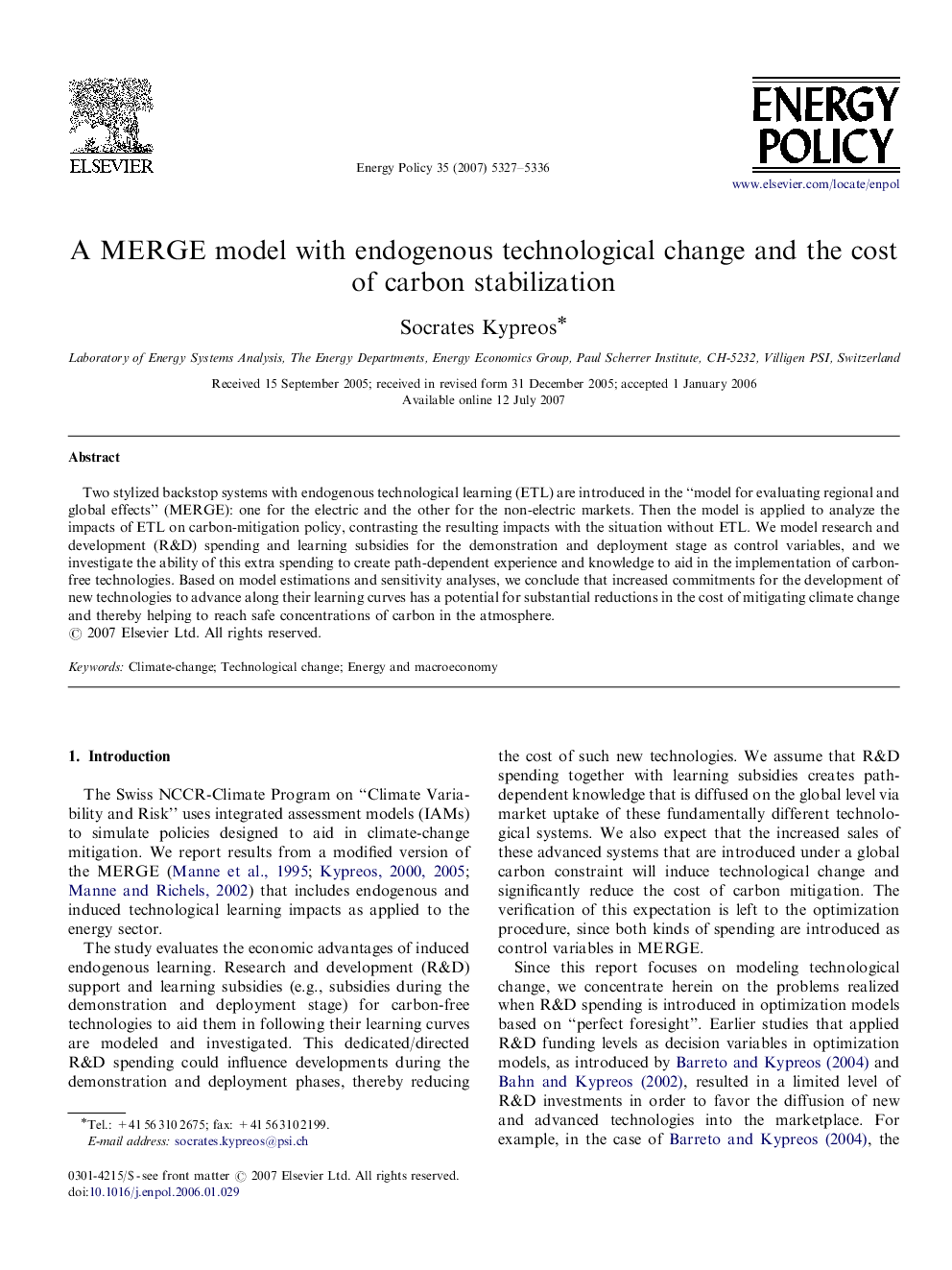| Article ID | Journal | Published Year | Pages | File Type |
|---|---|---|---|---|
| 994169 | Energy Policy | 2007 | 10 Pages |
Two stylized backstop systems with endogenous technological learning (ETL) are introduced in the “model for evaluating regional and global effects” (MERGE): one for the electric and the other for the non-electric markets. Then the model is applied to analyze the impacts of ETL on carbon-mitigation policy, contrasting the resulting impacts with the situation without ETL. We model research and development (R&D) spending and learning subsidies for the demonstration and deployment stage as control variables, and we investigate the ability of this extra spending to create path-dependent experience and knowledge to aid in the implementation of carbon-free technologies. Based on model estimations and sensitivity analyses, we conclude that increased commitments for the development of new technologies to advance along their learning curves has a potential for substantial reductions in the cost of mitigating climate change and thereby helping to reach safe concentrations of carbon in the atmosphere.
